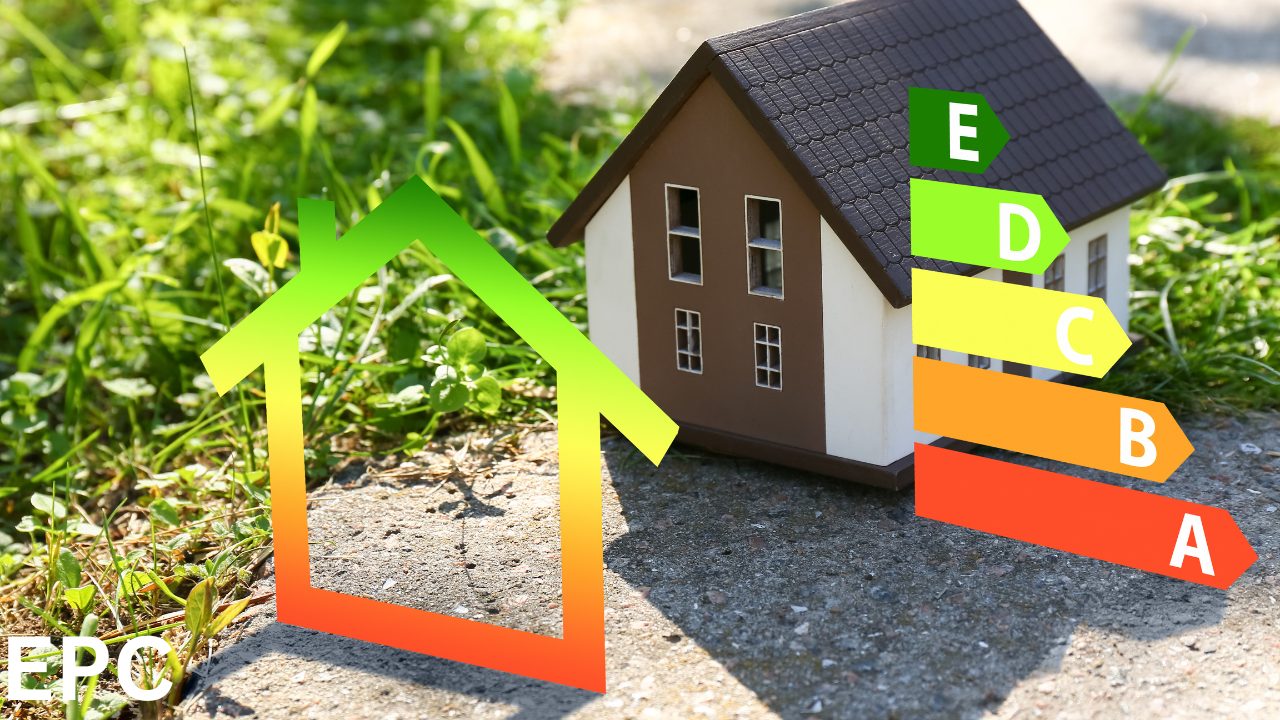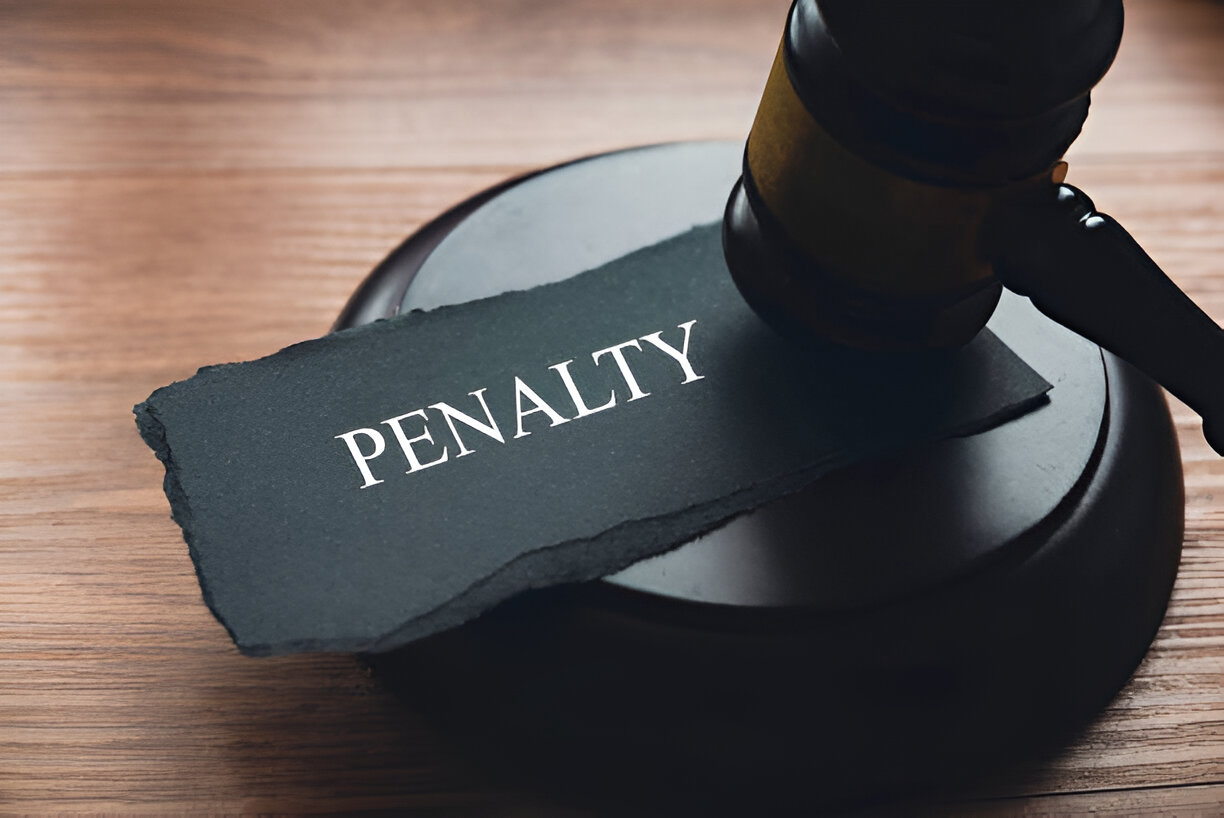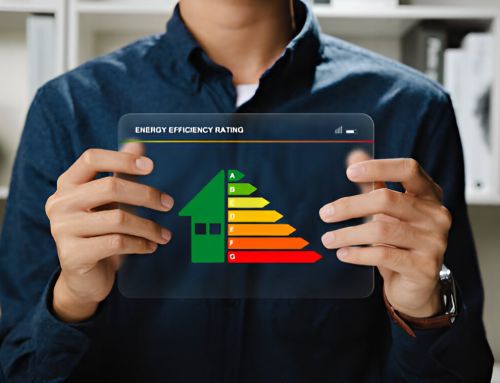
Recalling the tale of Icarus, who ignored warnings and met his downfall, I can’t help but draw parallels with property owners who neglect the need for an Energy Performance Certificate (EPC). It’s not just about a piece of paper; it’s about legal obligations, energy efficiency, and avoiding penalties that could hit your wallet hard.
But what exactly are these penalties, and how severe can they be? Stay with me, as we explore this significant issue further, and I promise, you’ll be better equipped to steer clear of such pitfalls.
Exemptions From EPC Requirement
While most buildings in the UK require an Energy Performance Certificate, there are a few notable exemptions such as listed buildings with upgrade restrictions, buildings used for religious activities, temporary structures used for less than 2 years, detached buildings under 50 square meters, and industrial, non-residential agricultural buildings with low energy use.

These exemptions are significant in that they reflect the balance between energy efficiency goals and the need to respect historical preservation, religious freedom, temporary use cases, and small-scale structures.
Importantly, the low-energy-use exemption for industrial and non-residential agricultural buildings underlines the principle that EPCs are designed for properties where energy efficiency improvements can have a substantial impact.
Being aware of these exemptions can help property owners navigate the EPC landscape with clarity and confidence.
EPC Regulation for Rental Properties
Turning our attention to rental properties, it’s important to understand that Energy Performance Certificates hold a significant role in this sector. Since 2008, it’s been mandatory for landlords to have an EPC when selling or letting properties.
This certificate aids tenants in making informed decisions about energy efficiency improvements in their prospective homes. From April 2018, landlords have been required to achieve a minimum ‘E’ rating on their EPCs. Failure to meet this standard can result in fines up to £4,000.
Additionally, tenants have had the right to request energy-saving upgrades from their landlords since April 2016. Therefore, it’s clear that EPC regulations for rental properties not only affect landlords but also have direct implications for tenants.
Legalities Surrounding EPC
Navigating the legal landscape of the Energy Performance Certificates can seem challenging, but it’s crucial for landlords and property owners to understand these obligations to avoid hefty penalties.
Firstly, it’s important to know that EPCs have been a legal requirement for sold or rented properties since 2008. If you’re a landlord, you must achieve a minimum ‘E’ rating on your EPC from April 2018 onwards; failing to do so can result in fines up to £4,000. Certain buildings, like those used for religious purposes or listed buildings with upgrade restrictions, are exempt from this requirement.
Lastly, tenants have the right to request energy-saving upgrades, a rule that’s been in place since April 2016.
Understanding Information on EPC
Delving into the details of an Energy Performance Certificate, it’s crucial to comprehend the wealth of information it provides about a property’s energy efficiency.
The certificate charts the energy performance rating of a building from ‘A’ – the most efficient, to ‘G’ – the least efficient. It also offers recommendations for enhancing energy efficiency, which is a roadmap to lower energy costs and a reduced carbon footprint.

Details about the property’s heating, lighting, and insulation are also included.
The EPC is valid for 10 years unless significant renovations occur that would alter the building’s energy profile. Understanding the data on this certificate is key to improving a building’s energy efficiency and compliance with regulations.
Process of Obtaining EPC
In order to obtain an Energy Performance Certificate (EPC), it’s necessary to reach out to an accredited energy performance assessor who can evaluate the energy efficiency of your property. This assessor will inspect various aspects of your property, which may include insulation, heating, and lighting systems. They’ll then provide you with an EPC that rates your property’s energy efficiency from A (most efficient) to G (least efficient).
This certificate not only contains your property’s energy rating but also offers recommendations on how to improve its energy efficiency. It’s important to note that an EPC is valid for 10 years, unless major renovations are made to the property. If that’s the case, a new EPC will need to be obtained.
Penalties of Not Having EPC
While obtaining an EPC may seem like another task on the property owner’s to-do list, it’s important to understand that failure to acquire this certificate can attract significant penalties. In fact, the fines for non-compliance can be steep, ranging from £500 to a whopping £5,000, depending on the severity of the infraction.

Landlords, take note: if you’re found renting out a property with an energy rating below ‘E’, you’re breaking the law. Your local authority has the power to enforce compliance, and they won’t hesitate to do so.
The bottom line? It’s not worth the risk. Get an EPC. Not only will it help you avoid penalties, but it’ll also make your property more attractive to potential buyers or tenants.
Frequently Asked Questions
What Happens if the EPC Rating Drops Below ‘E’ After the Property Has Already Been Rented Out?
If the EPC rating drops below ‘E’ after renting out, it’s not an immediate issue. However, upon lease renewal or reletting, improvements are required to meet the ‘E’ rating. Fines may apply for non-compliance.
Does a Property Require a New EPC Every Time It Changes Tenants?
No, a property doesn’t require a new EPC every time it changes tenants. An EPC is valid for 10 years, regardless of tenant turnover, unless major energy-related renovations have been made.
What Are the Qualifications and Certifications Needed to Become an Accredited Energy Performance Assessor?
To become an accredited energy performance assessor, you’ll need a relevant level 3 diploma, successful completion of a training course, and certification from an approved accreditation scheme. Practical experience is often necessary as well.
In Case of Shared Ownership Properties, Who Is Responsible for Obtaining the EPC – the Landlord or the Tenant?
In shared ownership properties, it’s generally the landlord’s responsibility to obtain the EPC. They must provide this before marketing the property, ensuring it meets minimum energy efficiency standards to avoid potential fines.
How Does the EPC Affect the Property Insurance Premiums, if at All?
As a property owner, I’ve found that an EPC doesn’t directly impact insurance premiums. However, it might influence a buyer’s or tenant’s decision, affecting the property’s market value indirectly, which could alter insurance costs.
Conclusion
In conclusion, as a landlord, it’s crucial to understand the importance of having an EPC. Not only does it help improve your property’s energy efficiency, it’s also a legal requirement. Failing to comply can lead to hefty fines and even prevent you from letting your property.
So, stay informed, understand your obligations, and make your property more appealing to tenants by ensuring you have a valid EPC. It’s worth the investment.
About the Author: LandlordCertificate
Related Posts
Get Social
Recent Posts
- Choosing the Right Consumer Unit for Fuse Box Installation London in Properties
- Electrical Diagnostic London: How Professional Testing Keeps Your Property Safe and Compliant
- Asbestos Management Survey London: Update Your Property Records
- Gas Safety Certificate London: Why Regular Checks Save Money Long-Term
- FRA London Explained: How a Professional Fire Risk Assessment Keeps You Compliant and Safe













